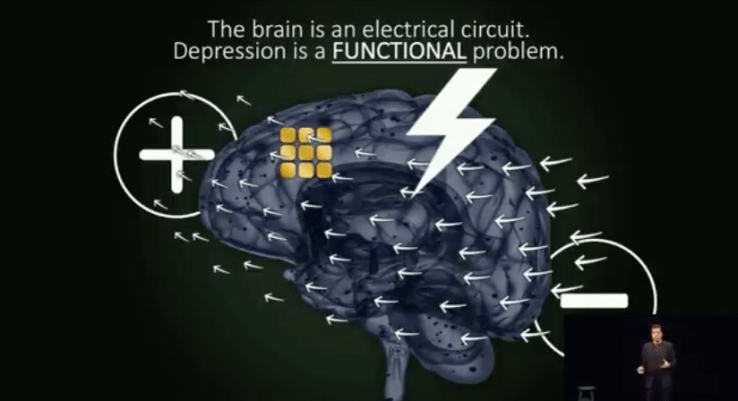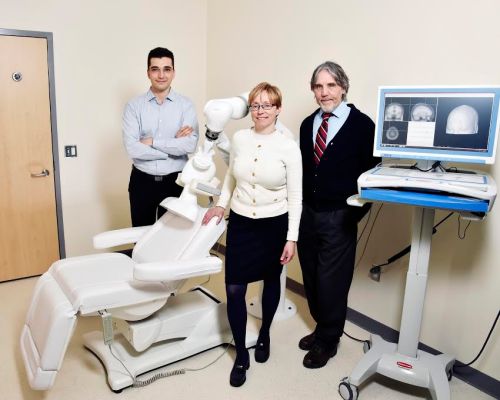NeuroQore wants to shoot magnetic pulses into your brain to try to treat mental disorders such as anxiety and depression.
Most doctors will give patients a number of drugs to treat these disorders, and up to two-thirds of patients won’t respond to their first drug. Another 10 to 30 percent of these same patients will never respond to drugs as treatment. But NeuroQore (not to be confused with Neurocore, the “brain performance” centers bankrolled by Betsy DeVos) hopes to replace drugs with these pulses and thinks it may be onto something with initial tests.
“We have an 87.5 percent remission success rate over drug-resistant depression,” co-founder Mehran Talebinjad tells TechCrunch.
It’s quite the claim — and the startup is in the very early stages with a very small amount of subjects at the moment — but similar brain wave technology has been around to treat mental diseases since the mid-1990s.
Neurofeedback sprang up a couple of decades ago to help with depression, anxiety, ADHD, PTSD, impulse control and a number of different types of addiction. It’s mostly used in social work professions or clinics where drugs are not the primary method of treatment, and works by stimulating parts of the brain to send a positive signal whenever a desired mood is achieved.
When a desirable brainwave pattern appears, the neurofeedback machine sends a pleasant tone (positive feedback) into the patient’s ears, which hopefully causes the brain to prolong that desirable brainwave pattern. Over time, the brain is trained to prolong a healthy brainwave pattern permanently.

NeuroQore presenting at IndieBio Demo Day 2017
NeuroQore is based on rTMS technology. It works in a slightly different way than other neurofeedback or electrical stimulation therapies. Rather than sending pleasant tones through the ears to train the brain, it uses the magnetic pulses to send those tones directly into the brain to create positive feedback on its own.
NeuroQore also measures its results with biomarkers as physical evidence. Unlike with talk therapy or drugs, this takes out some of the guesswork of if and where the brain might be improving.
According to NeuroQore and another expert source we asked who uses neurofeedback, there are also no side effects to these types of therapies. But the downside is this type of therapy may also not work for everyone.
Talebinjad, who has a degree in biomedical engineering, came up with the idea after performing his first brain surgery. “Neuromodulation is super important and the brain is so complex,” he said. “I realized during this surgery there wasn’t a lot of effective approaches out there.”
NeuroQore is already approved in Canada, where its headquarters is in Ontario. The next challenge for Talebinjad and his team is getting FDA approval, though he says he does have a line out there.
And he hopes to set up brain centers where patients can go and get magnetic stimulation treatment throughout California later this year.
NeuroQore debuts its technology at biotech accelerator Indiebio’s Demo Day today in downtown San Francisco. You can see this team and others get on stage and tell you about their new and exciting biotech startups on our live feed right on TechCrunch by clicking here.
